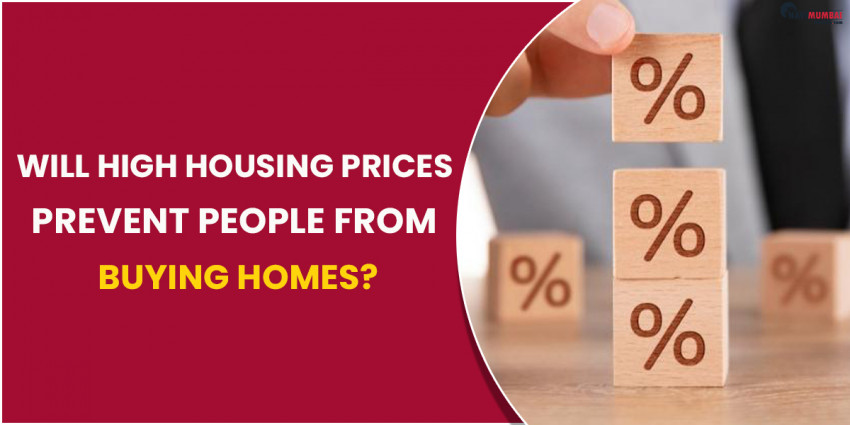
By focusing on their potential future earnings, borrowers of loans can purchase the residences of their dreams. Because home loans are typically relatively large in size, borrowers need a lengthy repayment period. Therefore, even a little adjustment in the interest rate on a house loan can have a significant impact on the total amount that must be repaid throughout the course of the loan.
The repo rate was recently raised by the RBI to 4.90 %. Usually, the attitude surrounding home purchases suffers as interest rates increase. The most recent data on home sales, however, paint a different picture. Up to June 27, 2022, Mumbai had 8,535 conveyance home sales recorded, bringing in Rs 632.88 crore in revenue. In June 2021 and June 2018, there were 7,856 and 6,183, respectively, conveyance sales registered. Does this indicate that the attitude of home buyers against the increase in the interest rate on home loans has become hostile?
Is Buying Real Estate On The Rise?
Beginning in the second half of 2020, the real estate market experienced a surge in activity that was fueled by a number of causes, including rate reductions by well-known developers, cheaper stamp duties imposed by various state governments, and lower interest rates. Along with the recovery of the economy and an uptick in the job sector, the trend persisted well into 2021. As a result, from 2018–19 to 2020–21, home sales increased. Although several of these sops began to slow down by the end of 2021, a strong job market kept driving up home purchases. Between the conclusion of home purchases and the actual registration, there is also a lag impact. The increase in transportation in the first half of 2022 serves as evidence of this. However, if both inflation and housing prices continue to rise, we might soon experience saturation.
Real estate analysts point out that when interest rates rise, borrowing costs frequently go up for both property purchasers and developers. As a result of the developers' increased borrowing costs, property rates may rise. Homebuyers will invariably pay extra for their EMIs as a result, which is always passed on to them. On the other hand, existing house buyers benefit from capital growth as a result of the increase in real estate prices. Prospective house buyers may have raced to purchase homes in the transition phase as the impact of the increase in borrowing costs may not have been immediately reflected in property prices, leading to an increase in property conveyances.
Impact Of Increase Interest Rates on Small Cities Vs Metro Areas
In June 2022, there were fewer conveyance sales in Maharashtra than there were on an annual basis (1, 45,526 versus 1, 25,225). Therefore, the question is irrelevant: Why is Mumbai's trend different from that of the rest of Maharashtra?
The variation in home sales throughout different sections of the country and the state is not just due to the shift in interest rates. The correct product being offered at the right price was one of the main drivers. There were hardly any new launches in 2020. However, there was a rush of new releases between 2021 and 2022. New launches grew overall in tier-1 cities by 68%. More supply-driven growth in sales volume was observed. There weren't many options available to the buyer in Maharashtra's smaller cities. As a result, sales also remained below average when compared to urban areas.
Is This A Difficult Time To Buy A Home?
People are moving to tier-1 cities like Mumbai as businesses resume and spending incomes increase. The industry and homebuyers need not worry too much as long as the increase falls within a specified range. A home buyer may take a few more quarters to save on their capital toward their own contribution in order to manage EMIs to absorb the impact of higher interest rates. In actuality, the effect of rising interest rates on EMIs is now not very noticeable.
Source from: navimumbaihouses





